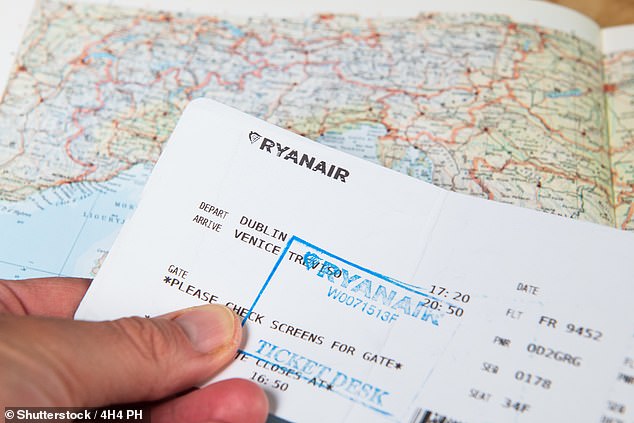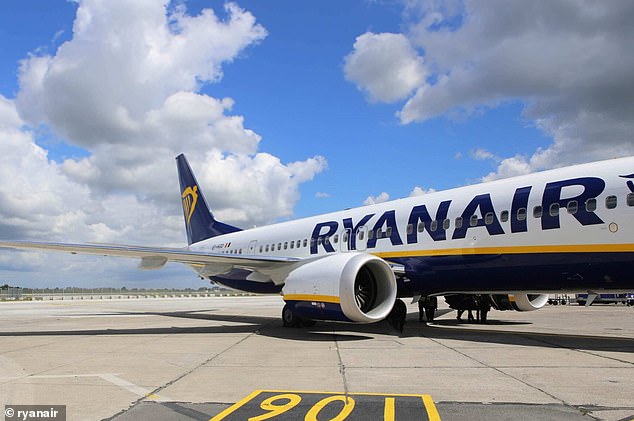Ryanair's Digital Boarding Pass Move Sparks Concerns in the UAE and Beyond
The move towards a completely digital experience in air travel continues, but not without raising concerns about accessibility and inclusivity. Ryanair's decision to eliminate physical boarding passes in favour of smartphone-based digital passes has ignited debate, particularly regarding its potential impact on older travellers and those less comfortable with technology. The transition, set to be fully implemented, raises questions about whether the convenience of digital solutions outweighs the needs of all passengers.
From November, Ryanair will require passengers to use the myRyanair app to access their boarding passes. This means the traditional option of printing a physical copy will no longer be available. While the airline touts the environmental benefits and streamlined process of going digital, critics argue that it could create significant hurdles for a substantial portion of the population.
The Concerns Voiced by Advocates
Advocacy groups for older travellers have strongly condemned the move, labelling it as "disgraceful." They argue that Ryanair is prioritizing cost savings over the well-being of its customers, particularly those who may not own smartphones or who find navigating digital interfaces challenging.
-
Digital Exclusion: A significant number of individuals in the UAE and globally do not have access to the internet or own smartphones. This digital divide means that Ryanair's policy could effectively exclude these passengers from flying with the airline.
-
Technological Proficiency: Even among those who own smartphones, varying levels of technological literacy exist. Older individuals, in particular, may struggle with downloading, accessing, and using digital boarding passes, potentially leading to confusion and anxiety at the airport.
-
Dependence on Technology: Relying solely on digital boarding passes creates a dependency on technology that can be unreliable. A dead phone battery, a lost or stolen device, or technical glitches with the app could all prevent a passenger from boarding their flight.

Ryanair's Response and Proposed Solutions
Ryanair maintains that the shift to digital boarding passes will simplify travel and reduce paper waste. The airline estimates that it will save 300 tonnes of paper annually through this initiative.
Ryanair's CEO, Michael O'Leary, has addressed some of the concerns, stating that passengers who lose their phones can have a paper boarding pass reissued at the airport free of charge, provided they have already checked in online. He also assured that even if a customer's phone battery dies, the airline should still be able to access their booking information and allow them to board.
-
Reissuing Boarding Passes: Ryanair claims that paper boarding passes will be reissued at the airport free of charge if a passenger loses their phone, provided they have checked in before getting to the airport.
-
Accessing Booking Information: The airline claims that even with a dead phone battery, they can access the sequence number in their systems and allow the passenger to board.

The Need for Alternative Solutions
Despite Ryanair's assurances, concerns remain about the practicality and reliability of these solutions. Critics argue that the airline has a responsibility to provide alternative options for passengers who are unable to use digital boarding passes.
-
Alternative Check-in Methods: There should be alternative ways to check in and show tickets that do not disadvantage those who aren’t online.
-
Staff Assistance: Airport staff should be trained and equipped to assist passengers who encounter difficulties with digital boarding passes.
-
Clear Communication: Ryanair needs to clearly communicate its new policy to passengers and provide adequate support to help them transition to the digital system.

The Wider Implications for the Travel Industry
Ryanair's move towards digital-only boarding passes is part of a broader trend in the travel industry. As airlines and airports increasingly embrace technology, it is crucial to ensure that these advancements do not create barriers for certain segments of the population.
-
Accessibility Considerations: The travel industry needs to prioritize accessibility in its digital transformation efforts. This means designing user-friendly interfaces, providing alternative options for those who cannot use digital technology, and offering adequate support to passengers who need assistance.
-
Inclusivity: The industry should strive to create an inclusive travel experience for all passengers, regardless of their age, technological proficiency, or access to technology.
-
Balancing Innovation and Inclusivity: Balancing the benefits of technological innovation with the needs of all passengers is essential. The goal should be to create a more efficient and convenient travel experience for everyone, without leaving anyone behind.
The debate surrounding Ryanair's digital boarding pass policy highlights the challenges of navigating the digital age. While technology offers numerous benefits, it is crucial to ensure that these advancements are implemented in a way that is inclusive and accessible to all. Airlines and other travel providers must consider the needs of all passengers, not just those who are tech-savvy, as they continue to embrace digital solutions.


No comments:
Post a Comment